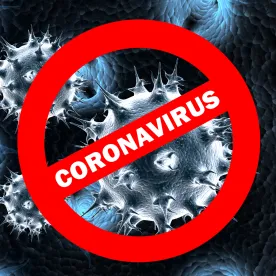In response to the ongoing coronavirus pandemic, on April 14, 2020, New Jersey Governor Phil Murphy signed into law Senate Bill 2374 (S2374), which amends the New Jersey Family Leave Act (NJFLA) and the New Jersey Family Leave Insurance law (NJFLI) to provide job-protected, paid leave to care for family members quarantined due to COVID-19, and amends the NJFLA to provide for job-protected unpaid leave to care for children due to COVID-19 school closures. The legislation also allows employers to seek certification relating to these expanded categories of leave, allows highly paid employees to take leave if the leave is COVID-19 related, and provides that COVID-19-related leave may be taken on an intermittent basis. These new provisions are retroactively effective as of March 25, 2020.
Categories of Permissible Leave Expanded Under the NJFLA
In general, the NJFLA provides an eligible employee with up to 12 weeks of unpaid, job-protected leave for the birth of a child of the employee, the adoption or placement of a child in foster care, or the care of a family member with a serious health condition. (The NJFLA does not provide leave for an employee to care for his or her own serious health condition.)
In response to the COVID-19 pandemic, S2374 expands the NJFLA’s categories of protected leave. Specifically, leave under the NJFLA will be triggered when:
-
a state of emergency declared by the governor or as required by a public health authority,
-
relating to an “epidemic,” “a known or suspected exposure to a communicable disease,” or “efforts to prevent the spread of a communicable disease,”
-
requires a covered employee to care for family members due to:
-
care for a child whose school or childcare facility is closed by order of a public official due to epidemic or public emergency,
-
care for a family member that is subject to a mandatory quarantine order as a result of an illness caused by an epidemic where the family member’s exposure would jeopardize the health of others, or
-
care for a family member who is in voluntary self-quarantine recommended by a health care provider or public authority as a result of suspected exposure to a communicable disease.
The new law defines “health care provider” as “a duly licensed health care provider or other health care provider deemed appropriate by the director [of the Division on Civil Rights].” Prior to this amendment, the NJFLA had not defined the term “health care provider.”
A prior amendment of the NJFLA (S2304, passed on March 25, 2020) had sought to expand the NJFLA’s definition of a “serious health condition” to include “an illness caused by an epidemic of a communicable disease, a known or suspected exposure to a communicable disease, or efforts to prevent spread of a communicable disease, which requires in-home care or treatment of a family member of the employee….” S2374 deleted this amendment to the serious health condition definition, and, instead, has expanded the NJFLA by revising the definition of allowed “family leave” contained in the statute.
NJFLI Expanded to Provide Paid Leave for New Leave Categories
The new law also expands the definition of compensable “family temporary disability leave” contained in the NJFLI law to include leave taken to care for a family member relating to COVID-19. Specifically, the law provides that in the event of a state of emergency declared by the governor or an indication by a health authority that one is needed, family temporary disability leave includes “an epidemic of a communicable disease, a known or suspected exposure to the communicable disease, or efforts to prevent the spread of the communicable disease, provide in-home care or treatment of the family member of the employee required due to (i) the issuance by a healthcare provider or the commissioner or other public health authority of a determination that the presence in the community of the family member may jeopardize the health of others; and (ii) the recommendation, direction, or order of the provider or authority that the family member be isolated or quarantined as a result of suspected exposure to a communicable disease.” (Emphasis added.)
In effect, the NJFLI will provide wage replacement benefits for up to 6 weeks (12 weeks effective July 1, 2020) for the reasons listed above. Furthermore, a seven-day waiting period does not apply to COVID-19-related disability benefits.
Employers May Seek Certification Relating to Expanded Categories of NJFLA Leave
The new law provides that an employer may request certification issued by a “school, place of care for children, public health authority, public official, or health care provider” for any school or childcare closure, mandatory quarantine or other prophylactic measure, or voluntary self-quarantine that gives rise to the leave. Specifically, an employer may require a certification with the following information:
-
School/child care closures: the date of and reason for the closure
-
Mandatory quarantine or other responsive/prophylactic measures of a family member: the date the public health authority issued the determination and the probable duration of the determination
-
Voluntary self-quarantine of a family member based on a recommendation of a health care provider/public health authority: “the date of the recommendation, the probable duration of the condition, and the medical or other facts within the health care provider or public health authority’s knowledge regarding the condition”
Highly Compensated Individuals Can Take COVID-19–Related NJFLA Leave
In general, an employer may deny NJFLA leave to a salaried employee who is among the highest-paid 5 percent of the workforce or among the seven highest-paid employees of the employer. The new law, however, provides that family leave cannot be denied to such highly paid employees when the family leave is: (1) due to a state of emergency declared by the governor or when indicated as necessary by a public health authority, and (2) “for an epidemic of a communicable disease, a known or suspected exposure to a communicable disease, or efforts to prevent the spread of a communicable disease.”
COVID-19–Related NJFLA Leave May Be Taken on an Intermittent Basis
The new law further provides that NJFLA leave “due to an epidemic of a communicable disease, a known or suspected exposure to the communicable disease, or efforts to prevent the spread of the communicable disease” may be taken on an intermittent basis so long as (1) prior notice is provided to the employer as soon as practicable and (2) a reasonable effort is made to schedule leave so as not to unduly disrupt the operations of the employer and, if possible, before leave is taken provide the employer with a regular schedule of the day(s) when intermittent leave will be taken.
NJTDL Definition of “Disability” Expanded
Finally, the new legislation expands the definition of an employee’s own “disability” under the NJTDL in light of the COVID-19 pandemic. Specifically, in the event of a state of emergency declared by the governor or an indication by a health authority that one is needed, the NJTDL’s definition of “disability” now includes “an illness caused by an epidemic of a communicable disease, a known or suspected exposure to a communicable disease, or efforts to prevent the spread of the communicable disease, which requires in-home care or treatment of an employee due to: (i) the issuance by a health care provider or the commissioner or other public health authority of a determination that the presence in the community of the employee may jeopardize the health of others; and (ii) the recommendation, direction, or order of the provider or authority that the employee be isolated or quarantined as a result of suspected exposure to a communicable disease.” (Emphasis added.) The new bill provides that a COVID-19-related “disability” (as that term is defined above) is compensable under the NJTDL.[1]
Although these amendments are in response to the current COVID-19 pandemic, they are not temporary measures. Employers may want to consider updating policies and notices to ensure compliance.
A prior legislative amendment, S2304, revised the definition of “serious health condition” contained in the Family Leave Insurance provisions of the NJTDL to make reference to the medical condition, isolation, and quarantine of both the employee and the employee’s family member. Presumably because the NJFLI’s definition of serious health condition is relevant only to leave taken relating to the care of an employee’s family member (and not the employee’s own condition), this provision was “technically corrected” in the new law, S2374, by deleting the change to the definition of “serious health condition”; revising the definition of “disability” (to make clear that the employee’s own COVID-19-related medical condition, isolation, or quarantine is covered); and revising the definition of “family temporary disability leave” (to make clear that a family member’s COVID-19-related medical condition, isolation, or quarantine is covered).




 />i
/>i

